Thinking About the “Final Chapter”? These Books May Help
“Don’t send me flowers when I’m dead. If you like me, send them while I’m alive.” – Brian Clough
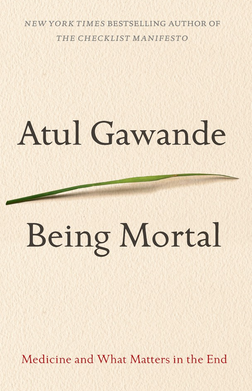 With the immense popularity of Atul Gawande’s 2014 book Being Mortal, there’s been a surge of interest in learning about end-of-life concerns – and making informed decisions – well before we face our final chapter. Discussing and planning for our ultimate end is no longer a taboo subject. From “The Conversation Project” to the “Death Café” movement to hosting “Good To Go” parties, folks are discussing death … especially death with dignity. Here’s a list of some other well-regarded books. We hope you find them helpful as you explore and understand your personal desires as death affects you and your loved ones.
With the immense popularity of Atul Gawande’s 2014 book Being Mortal, there’s been a surge of interest in learning about end-of-life concerns – and making informed decisions – well before we face our final chapter. Discussing and planning for our ultimate end is no longer a taboo subject. From “The Conversation Project” to the “Death Café” movement to hosting “Good To Go” parties, folks are discussing death … especially death with dignity. Here’s a list of some other well-regarded books. We hope you find them helpful as you explore and understand your personal desires as death affects you and your loved ones.
The Conversation: A Revolutionary Plan for End-of-Life Care (2015), by Angelo Volandes, MD
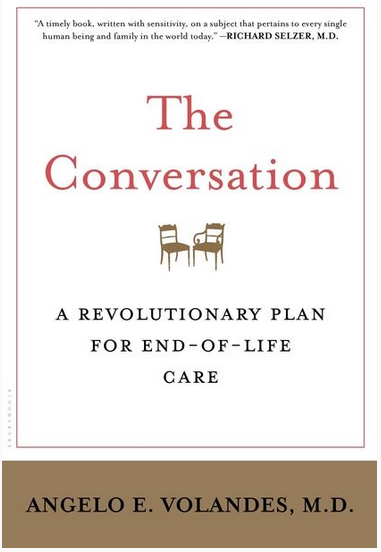 Dr. Volandes believes that a life well-lived deserves a good ending. Through the stories of patients with very different end-of-life experiences, he demonstrates that what people with a serious illness need most is not new technology, but one simple thing: The Conversation. He argues for a radical re-envisioning of the patient-doctor relationship and offers ways for patients and their families to talk about this difficult issue to ensure that patients will be at the center and in charge of their medical care.
Dr. Volandes believes that a life well-lived deserves a good ending. Through the stories of patients with very different end-of-life experiences, he demonstrates that what people with a serious illness need most is not new technology, but one simple thing: The Conversation. He argues for a radical re-envisioning of the patient-doctor relationship and offers ways for patients and their families to talk about this difficult issue to ensure that patients will be at the center and in charge of their medical care.
Knocking On Heaven’s Door: The Path to a Better Way of Death (2013), by Katy Butler
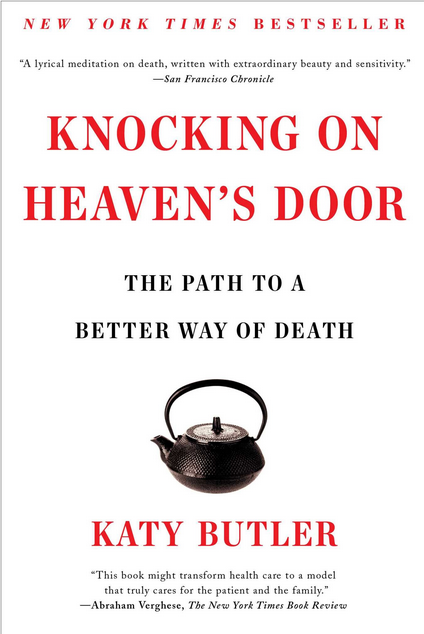 In this visionary memoir, based on a groundbreaking New York Times Magazine story, award-winning journalist Katy Butler ponders her parents’ desires for “good deaths” and the forces within medicine that stood in the way. It will inspire the difficult conversations we need to have with loved ones as it illuminates the path to a better way of death.
In this visionary memoir, based on a groundbreaking New York Times Magazine story, award-winning journalist Katy Butler ponders her parents’ desires for “good deaths” and the forces within medicine that stood in the way. It will inspire the difficult conversations we need to have with loved ones as it illuminates the path to a better way of death.
Dying Well: Peace and Possibilities at the End of Life (1997), by Ira Byock, MD
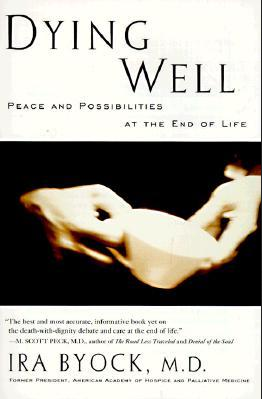 From the prominent palliative care physician and expert in end-of-life decisions, Dr. Byock tells true stories of love and reconciliation in the face of tragedy, pain, medical drama, and conflict. A lot of important emotional work can be accomplished in the final months, weeks, and even days of life. It is a companion for families, showing them how to deal with doctors, how to talk to loved ones—and how to make the end of life as meaningful and enriching as the beginning.
From the prominent palliative care physician and expert in end-of-life decisions, Dr. Byock tells true stories of love and reconciliation in the face of tragedy, pain, medical drama, and conflict. A lot of important emotional work can be accomplished in the final months, weeks, and even days of life. It is a companion for families, showing them how to deal with doctors, how to talk to loved ones—and how to make the end of life as meaningful and enriching as the beginning.
How We Die: Reflections of Life’s Final Chapter (1993), by Sherwin B. Nuland
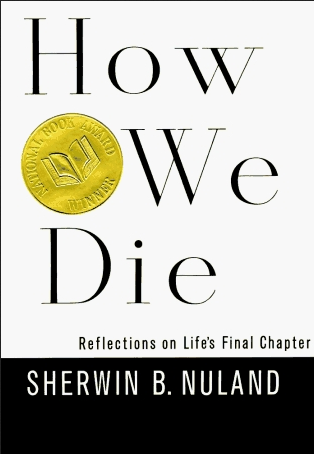 A runaway bestseller and National Book Award winner, Sherwin Nuland’s How We Die has become a definitive text on perhaps the single most universal human concern: death. It also discusses how we can take control of our own final days and those of our loved ones. It’s considered a must-read for anyone over 50. There’s a new edition with a chapter addressing contemporary issues in end-of-life care.
A runaway bestseller and National Book Award winner, Sherwin Nuland’s How We Die has become a definitive text on perhaps the single most universal human concern: death. It also discusses how we can take control of our own final days and those of our loved ones. It’s considered a must-read for anyone over 50. There’s a new edition with a chapter addressing contemporary issues in end-of-life care.
About the Author:
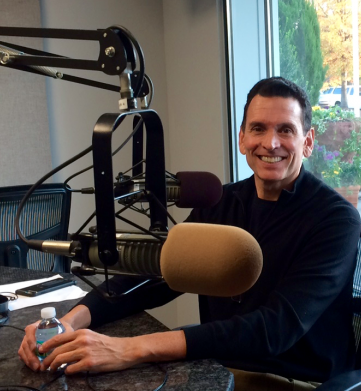 Lorenzo Mejia and his wife, Mary Lynn Ryerson, are the owners of Acorn, a caregiver registry located in Chapel Hill.
Lorenzo Mejia and his wife, Mary Lynn Ryerson, are the owners of Acorn, a caregiver registry located in Chapel Hill.
They founded Acorn based on their experiences caring for his mom, who suffered with Alzheimer’s Disease. In 2013, he became a Qualified Dementia Care Specialist. In 2014, the Alzheimer’s Foundation named him the Dementia Care Professional of the Year in the United States.
Lorenzo is the founder of Dementia Friendly Orange County an effort to make local businesses more accommodating to people with dementia.
Lorenzo speaks often on dementia and the challenges associated with caring for loved ones. He has been interviewed by ABC News and National Public Radio. He is an advisor to Orange County’s OC-CARES Dementia Capable Community Project.
Click here for a listing of other articles from ‘The Caring Corner’ on Chapelboro.com


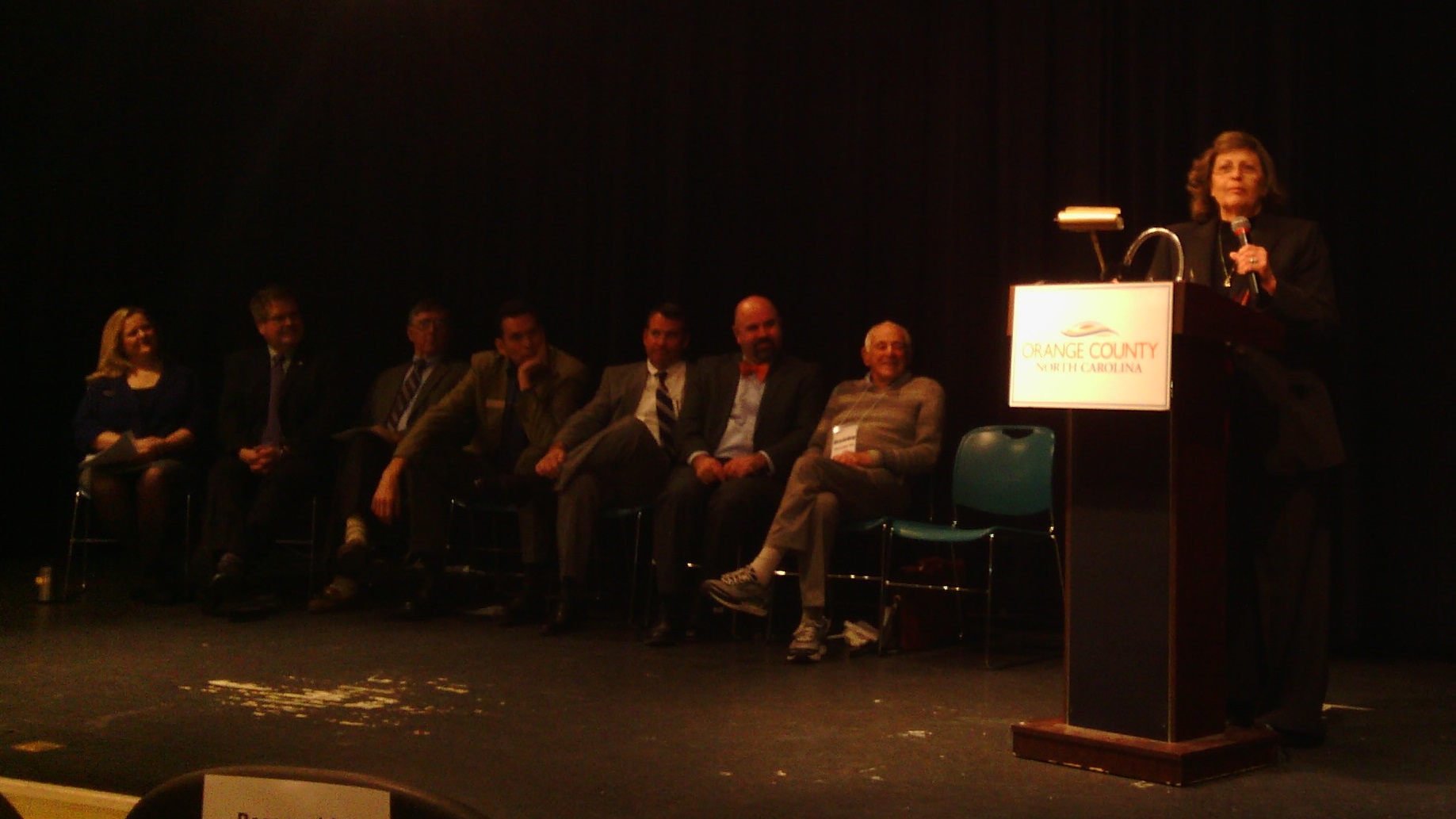


“Handbook for Mortals” is very helpful & “The Four things that matter most”